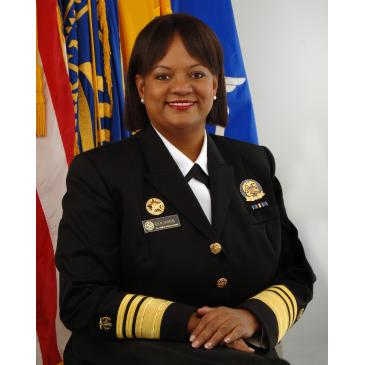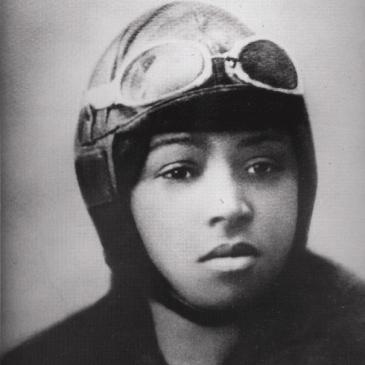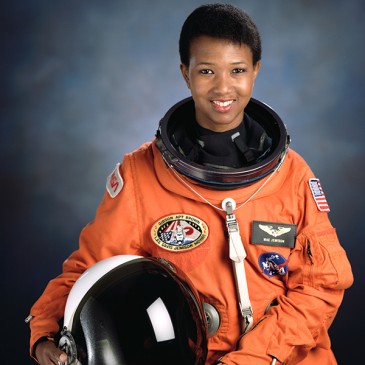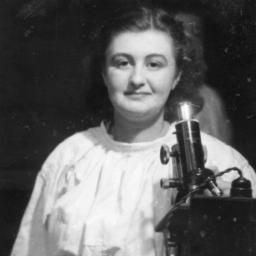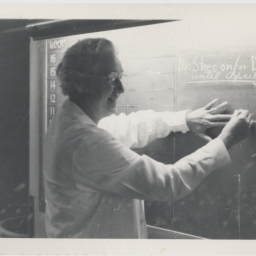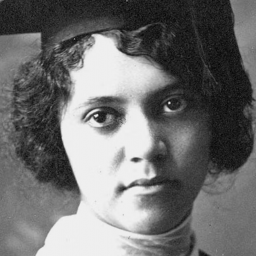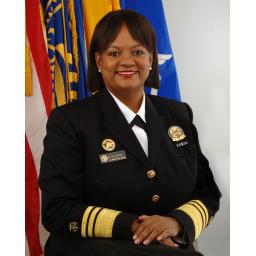Kihana Wilson
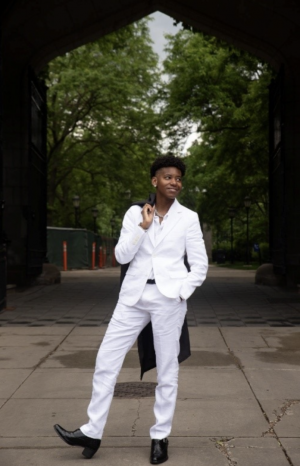
“Thus studying the universe is my reclamation; studying the universe is my reparations; studying the universe is not at the expense of my blackness or queerness or womanhood.
Studying the universe is in support of all of my blackness and all of my queerness and all of my womanhood.
Studying the universe matters, not for it and not just for science, but for me.”
Kihana Wilson, New Voices in Nonfiction Student Reading at The University of Chicago: Division of the Humanities, 2023
Wilson discovered astrophysics at 10 years old. The week that she discovered the field after reading a book about the founders of modern astronomy; she knew she would become an astrophysicist (Diversity in Action). Growing up in Houston, Texas, in a predominantly low-income neighborhood, she sought every opportunity and connection she could find to explore her interest, which was different from the rest of her family, friends, and community. At 17, she became the first person in her family to attend college when she earned admission to the University of Chicago as a QuestBridge and Odyssey scholar (Kirrin Finch).
Balancing part-time jobs and rigorous studies, Wilson worked tirelessly to support herself through college. She speaks openly about the challenges she faced, such as imposter syndrome and emotional breakdowns, highlighting how the systems at her university weren’t designed with students “like her in mind” (Kirrin Finch). The lack of representation and feelings of isolation proved to her the importance of representation in STEM (Instagram). Despite these obstacles, she graduated with a bachelor’s degree in Astrophysics and a minor in English and Creative Writing.
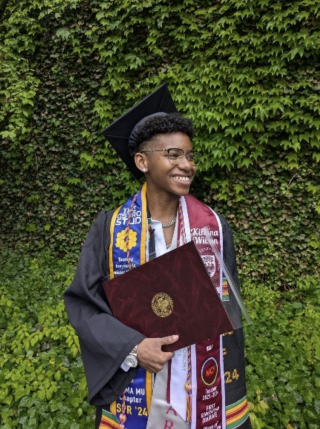
Wilson celebrates her graduation from The University of Chicago with her Bachelor's degree in Astrophysics.
Wilson actively uses social media platforms to connect with her community, creating reels to educate others about astrophysics, as well as to emphasize the importance of representation and diversity in the field. In an interview, she explained that her motto is, “Busting barriers in science through unapologetic representation,” (Kirrin Finch). Using short and engaging videos to teach about astrophysics, advocates for nontraditional education and supports her mission of making the field accessible. Wilson’s accounts cover topics where one can learn about tidal stripping, Milkdromeda, gravity, Black scientists, and more.
In a reel highlighting career opportunities for Black and Brown youth, Wilson passionately asserts, “You cannot become what you cannot see” (Instagram). She further explains that exposing youth to representation provides them with the mental freedom and empowerment to dream boldly about their future, past the stereotypical jobs society decided for low income and Black youth (i.e. sports, entertainment, etc.).
In another reel, Wilson addresses the stark lack of representation of Black women in astronomy. She points out that, despite astronomy being the oldest science in history, only 40 Black women have earned PhDs in the field (Instagram). Wilson attributes this disparity to “microaggressions, misogynoir, and structural inequalities that impact retention at every level, from undergraduate students to professionals.”
In her new series, “Black Unsung Heroes of Science,” Wilson highlights both historic and contemporary Black scientists, such as Dr. Warren Elliot Henry, Dr. Gladys West, and Benjamin Banneker, who have made significant contributions to physics, astronomy, and related fields. Through these short videos, Wilson shares the lives and career paths of these often-underrepresented scientists, shedding light on their invaluable impact.
In October 2024, Wilson gave her first keynote speech at the 14th Annual Out in Science, Technology, Engineering, and Mathematics, Inc. (oSTEM) Conference. Her speech, “Out in Space: Where Our Science and Out Identities Collide”, Wilson explored the parallels between astrophysical concepts like dark matter and tidal stripping and the challenges faced by marginalized individuals pursuing STEM careers. She shared practical advice for navigating these obstacles, drawing on her own experiences as a recent college graduate and science communicator. Wilson highlighted the importance of representation, accessibility, and outreach in making STEM fields more inclusive. She expressed gratitude to oSTEM and collaborators for the opportunity to inspire diverse communities through her talk. The experience reaffirmed her commitment to science communication, outreach, and fostering positive representation for underrepresented groups in STEM disciplines (Instagram).
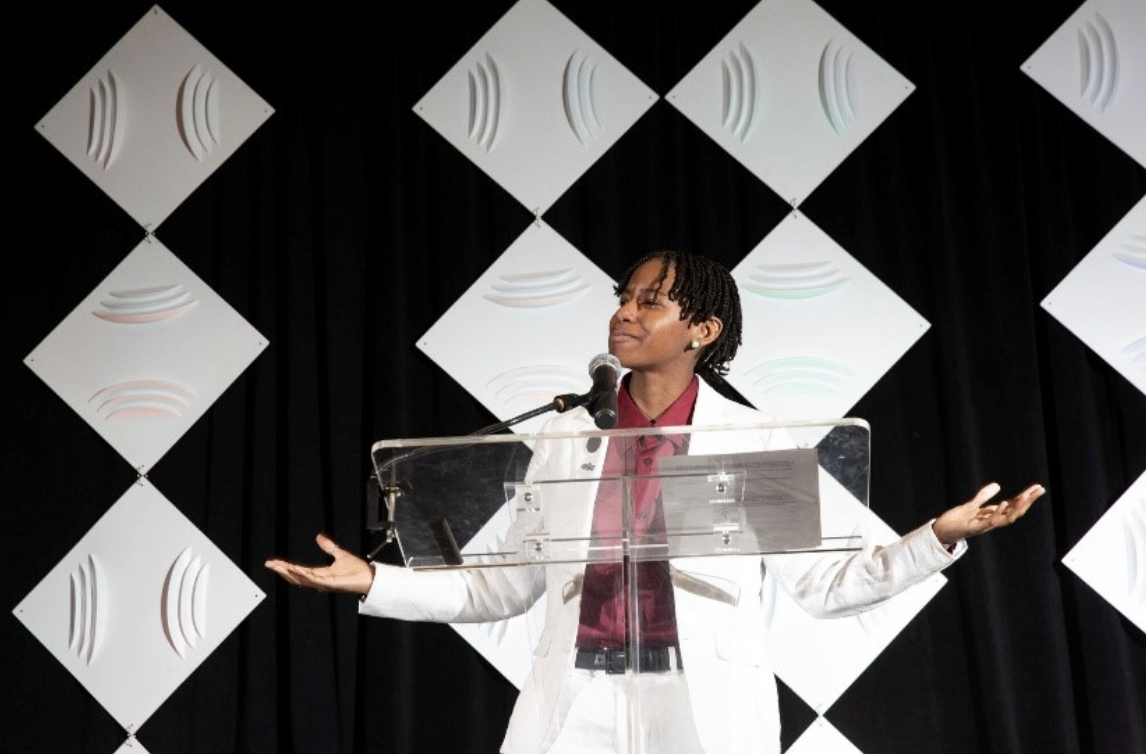
Wilson delivering her keynote speech at the Out in Science, Technology, Engineering, and Mathematics 2024 Conference.
Wilson has also served on panels for the National Space Council’s Black Space Week forum, presented at the American Physical Society’s Conference for Undergraduate Women in Physics (CUWiP), and earned numerous scholarships and fellowships.
Today, Wilson researches “proto-clusters”—groups of galaxies in the early Universe—at Argonne National Laboratory. Wilson is also a current Physics PhD student in the Department of Physics at Michigan. She writes computer codes to track how these galaxies grow over time, enabling scientists to identify them more easily with advanced telescopes like the James Webb Space Telescope. Outside of work, she is also a creative nonfiction writer and poet. Wilson plans to return to school to earn her PhD in Astrophysics.
 Classroom Resources
Classroom Resources
Check out the Digital Classroom Resources page on the website. Please list up to 4 lesson plans you think will be relevant to the profile.
Develop an elementary-school and middle-school / high-school level bell ringer for this profile. Here are resources to guide you as you develop this activity for teachers: definition of bell ringer, examples of bell ringers.
Elementary School
Astronaut Packing List
If you were going to space for one week, what five items would you pack and why?
Upper Level
In 1 minute, write down as many constellations as you can. Bonus points if you can draw what they look like!
 Carry the Torch
Carry the Torch
UChicago Program in Creative Writing. “New Voices in Nonfiction Student Reading: Kihana Wilson, Winter 2023.” YouTube video. 12:46. Posted April 18, 2024. https://www.youtube.com/watch?v=V4nLJ1sxS4E&t=110s.
IBM. “OSTEM Keynote: Kihana Wilson.” Recorded November 17, 2022. Accessed February 5, 2025. https://video.ibm.com/recorded/133720921.
Diverse Issues in Higher Education. “Celebrating Excellence in STEM: Spotlight on Kihana Wilson.” Digital edition, page 46. Accessed February 5, 2025. https://mydigitalpublication.com/publication/?i=833201&p=46&view=issueViewer.
Kirrin Finch. “Dapper Scouts: Kihana Wilson.” Blog post. Accessed February 5, 2025. https://kirrinfinch.com/blogs/dapper-scouts/kihana-wilson
Instagram. “On Being the Representation for Others That I Needed.” Reel, @the_astro_stud. Accessed February 5, 2025. https://www.instagram.com/the_astro_stud/reel/C2atDlvR29T/.
Instagram. “Black Unsung Heroes of Science.” Post, @the_astro_stud. Accessed February 5, 2025. https://www.instagram.com/p/DEU6aegxaW8
Instagram. “Highlighting Dr. Gladys West’s Contributions.” Post, @the_astro_stud. Accessed February 5, 2025. https://www.instagram.com/p/DFiOxoFxv83
Instagram. “Benjamin Banneker’s Legacy in Astronomy.” Post, @the_astro_stud. Accessed February 5, 2025. https://www.instagram.com/p/DFkx7HbRSza
Instagram. “Dr. Warren Elliot Henry’s Contributions to Science.” Post, @the_astro_stud. Accessed February 5, 2025. https://www.instagram.com/p/DFnWsa4RVaB
Instagram. “Representation in STEM for Black and Brown Youth.” Post, @the_astro_stud. Accessed February 5, 2025. https://www.instagram.com/p/DCpfxcQyXfU/?img_index=1
MLA — Robledo-Allen Yamamoto, Asami. “Kihana Wilson.” National Women’s History Museum, 2025. Date accessed.
Chicago — Robledo-Allen Yamamoto, Asami. “Kihana Wilson.” National Women’s History Museum. 20245 www.womenshistory.org/education-resources/biographies/Kihana-Wilson
Bessie Coleman

This biography is sponsored in part by the Library of Congress Teaching with Primary Sources Eastern Region Program, coordinated by Waynesburg University. Content created and featured in partnership with the TPS program does not indicate an endorsement by the Library of Congress.
For further information or questions, please contact history@womenshistory.org.
Mae Jemison

This biography is sponsored in part by the Library of Congress Teaching with Primary Sources Eastern Region Program, coordinated by Waynesburg University. Content created and featured in partnership with the TPS program does not indicate an endorsement by the Library of Congress.
For further information or questions, please contact history@womenshistory.org.

